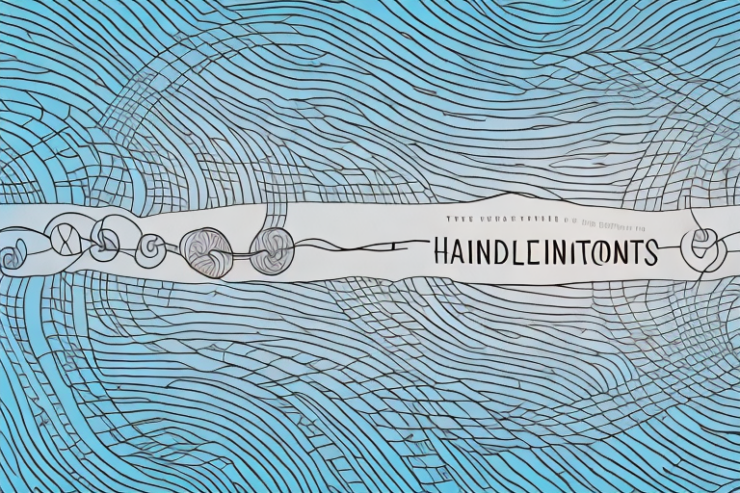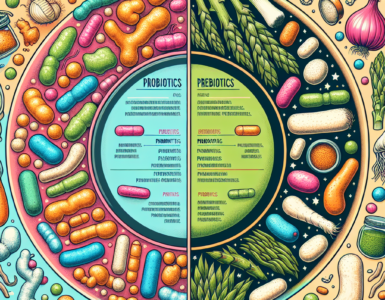Personal growth is a process of self-improvement that requires a continuous effort to live a fulfilling life, find happiness, and achieve life goals. Regardless of where you are in life, it is possible to achieve personal growth. In this article, we’ll explore ten steps that can help you unlock your potential and reach new heights.
Understanding Personal Growth
Defining Personal Growth
Personal growth refers to the process by which individuals develop their abilities, enhance their potential, and increase their self-awareness. It is a gradual process that requires you to make a conscious effort to recognize the areas where you need to grow and work towards improving them. Personal growth can manifest in a variety of ways, including your emotional, intellectual, spiritual, physical, and social aspects of life.
One of the key aspects of personal growth is self-awareness. This involves understanding your own strengths and weaknesses, as well as your values, beliefs, and motivations. By developing a deeper understanding of yourself, you will be better equipped to make positive changes in your life.
Another important aspect of personal growth is the ability to learn and grow from your experiences. This involves being open to new ideas and perspectives, and being willing to step outside of your comfort zone. By embracing new challenges and opportunities, you will be able to expand your horizons and develop new skills and abilities.
The Importance of Personal Growth
The benefits of personal growth are endless. Engaging in personal growth helps you to increase your self-awareness, develop positive thinking patterns, build resilience, improve your relationships with others, and make progress towards your life goals. Developing a growth mindset and focusing on personal growth will help you create the life you envision for yourself.
One of the key benefits of personal growth is improved mental health. By focusing on personal growth, you will be able to develop coping strategies for dealing with stress and anxiety, as well as develop a more positive outlook on life. This can lead to improved overall well-being and a greater sense of happiness and fulfillment.
Personal growth can also have a positive impact on your relationships with others. By developing greater self-awareness and emotional intelligence, you will be better equipped to communicate effectively and build stronger, more meaningful connections with those around you.
Finally, personal growth is essential for achieving your goals and living the life you want. By focusing on personal growth, you will be able to identify and overcome any obstacles that are holding you back, and develop the skills and abilities necessary to achieve your dreams.
Cultivating Self-Awareness
Self-awareness is the first step in the personal growth journey. It involves understanding your strengths, weaknesses, values, and beliefs. By cultivating self-awareness, you can gain a better understanding of who you are and what you want out of life.
Self-awareness is an ongoing process that requires constant self-reflection and evaluation. It is not something that can be achieved overnight, but rather a lifelong journey of self-discovery.
Assessing Your Strengths and Weaknesses
Identifying your strengths and weaknesses can help you create a plan to improve yourself. Make a list of what you are good at and what you need to work on. This can include both personal and professional areas of your life.
Once you have identified the areas where you need to improve, you can create a roadmap and focus your energy on those areas. This can include taking courses, seeking out mentors, or practicing new skills.
Remember, it is important to also celebrate your strengths and acknowledge your accomplishments. By focusing on your strengths, you can build on them and continue to grow and develop.
Identifying Your Core Values
Identifying your core values will help you make decisions that are aligned with your beliefs. Determine what drives you and makes you happy. This can include things like honesty, integrity, family, or community involvement.
When your actions align with your values, you will be able to create a more fulfilling life for yourself. It can also help you prioritize your time and energy, and make decisions that are in line with your long-term goals.
Remember, your core values may shift and change over time as you grow and develop as a person. It is important to regularly reassess and evaluate your values to ensure they are still aligned with who you are and what you want out of life.
The Benefits of Self-Awareness
Cultivating self-awareness can have numerous benefits in both your personal and professional life. By understanding your strengths and weaknesses, you can improve your performance and achieve your goals.
Identifying your core values can help you make decisions that are in line with your beliefs, leading to a more fulfilling life. Self-awareness can also improve your relationships with others by allowing you to better understand and communicate your needs.
Overall, cultivating self-awareness is an important step in the personal growth journey. It can help you become a better version of yourself and live a more fulfilling life.
Setting SMART Goals
Defining Specific, Measurable, Achievable, Relevant, and Time-bound Goals
Setting SMART goals is an essential step towards achieving personal growth. SMART goals should be specific, measurable, achievable, relevant, and time-bound. They provide direction and focus, making it easier to track your progress and make adjustments as needed.
When setting specific goals, it is important to ask yourself what you want to achieve and why it is important to you. This will help you define your goal and give you a clear idea of what you need to do to achieve it. Measurable goals are important because they allow you to track your progress and see how far you’ve come. This can be motivating and help you stay on track.
Achievable goals are those that are realistic and within your reach. It’s important to set goals that challenge you, but not ones that are impossible to achieve. Relevant goals are those that are aligned with your values and beliefs. When setting goals, it’s important to consider how they fit into your overall vision for your life.
Time-bound goals are those that have a specific deadline or timeframe attached to them. This helps to create a sense of urgency and can motivate you to take action. When setting time-bound goals, it’s important to be realistic about how much time you have to achieve them.
Breaking Down Long-term Goals into Short-term Milestones
Breaking down long-term goals into short-term milestones can help you stay motivated and track your progress. Small, achievable goals that lead up to a long-term goal will keep you excited and give you something to work towards every day.
For example, if your long-term goal is to run a marathon, you can break it down into smaller milestones such as running a 5k, then a 10k, and eventually a half marathon. This will help you stay motivated and give you a sense of accomplishment as you reach each milestone.
It’s important to celebrate your successes along the way, no matter how small they may seem. This will help you stay motivated and focused on your long-term goal. Remember, achieving your goals takes time and effort, but with the right mindset and approach, anything is possible.
Developing a Growth Mindset
Developing a growth mindset is essential for personal and professional growth. It involves embracing challenges, adopting a continuous learning attitude, and viewing failures as opportunities for growth.
Embracing Challenges and Failures
Embracing challenges and failures is crucial for personal growth. When you step out of your comfort zone and take on challenges, you learn new skills and develop resilience. It’s important to remember that failures are not setbacks, but rather opportunities to learn and grow. When you embrace challenges and look for solutions, you develop a growth mindset that can help you overcome obstacles in all areas of your life.
For example, imagine you’re learning a new language, and you struggle to remember certain words. Instead of giving up, you embrace the challenge and look for ways to improve. You might try practicing with a native speaker, watching videos in the language, or using flashcards to memorize vocabulary. By embracing the challenge and seeking solutions, you develop a growth mindset that can help you overcome obstacles in other areas of your life.
Adopting a Continuous Learning Attitude
Adopting a continuous learning attitude is a trait that successful individuals possess. By committing to learning something new every day, you expand your knowledge and improve your problem-solving skills. Continuous learning also helps you stay curious and open-minded, which can lead to new opportunities and experiences.
For example, you might decide to learn a new skill, such as coding or public speaking. By dedicating time each day to practice and learn, you develop a growth mindset and improve your abilities. You might also read books, attend workshops, or take online courses to expand your knowledge and gain new perspectives.
It’s important to remember that adopting a continuous learning attitude doesn’t mean you have to become an expert in everything. Instead, focus on areas that interest you and align with your goals. By learning new things and expanding your knowledge, you can improve yourself and achieve your aspirations.
In conclusion, developing a growth mindset involves embracing challenges, adopting a continuous learning attitude, and viewing failures as opportunities for growth. By committing to these principles, you can improve yourself, overcome obstacles, and achieve your goals.
Building Resilience
Overcoming Obstacles and Setbacks
Life is full of obstacles and setbacks. Building resilience is a crucial step towards achieving your goals. When you encounter an obstacle or setback, resist the urge to give up and instead look for alternative solutions. Remember that setbacks are opportunities for growth.
One way to build resilience is to develop a growth mindset. This means viewing challenges as opportunities to learn and grow, rather than as threats to your success. By embracing a growth mindset, you can approach obstacles with a sense of curiosity and a willingness to try new things.
Another important aspect of building resilience is cultivating a strong support network. This can include family, friends, mentors, or colleagues who can offer encouragement, guidance, and perspective when you need it most. By surrounding yourself with positive influences, you can stay motivated and focused on your goals, even in the face of adversity.
Practicing Emotional Intelligence
Practicing emotional intelligence involves understanding and managing your emotions effectively. When you master emotional intelligence, you can handle stressful situations and communicate effectively with others, which is a vital component of personal growth.
One way to develop emotional intelligence is to practice mindfulness. This involves paying attention to your thoughts, feelings, and physical sensations in the present moment, without judgment. By practicing mindfulness, you can become more aware of your emotions and better equipped to manage them in a healthy and productive way.
Another important aspect of emotional intelligence is empathy. This involves putting yourself in someone else’s shoes and understanding their perspective. By developing empathy, you can communicate more effectively with others, build stronger relationships, and navigate conflicts more successfully.
Ultimately, building resilience and practicing emotional intelligence go hand in hand. By developing these skills, you can become more adaptable, more confident, and better equipped to handle whatever challenges life throws your way.
Conclusion
Personal growth is a lifelong journey that requires a conscious effort to achieve your goals and become the best version of yourself. By following these ten steps and committing to a continuous learning attitude, you can unlock your potential, cultivate resilience, and achieve your dreams.











